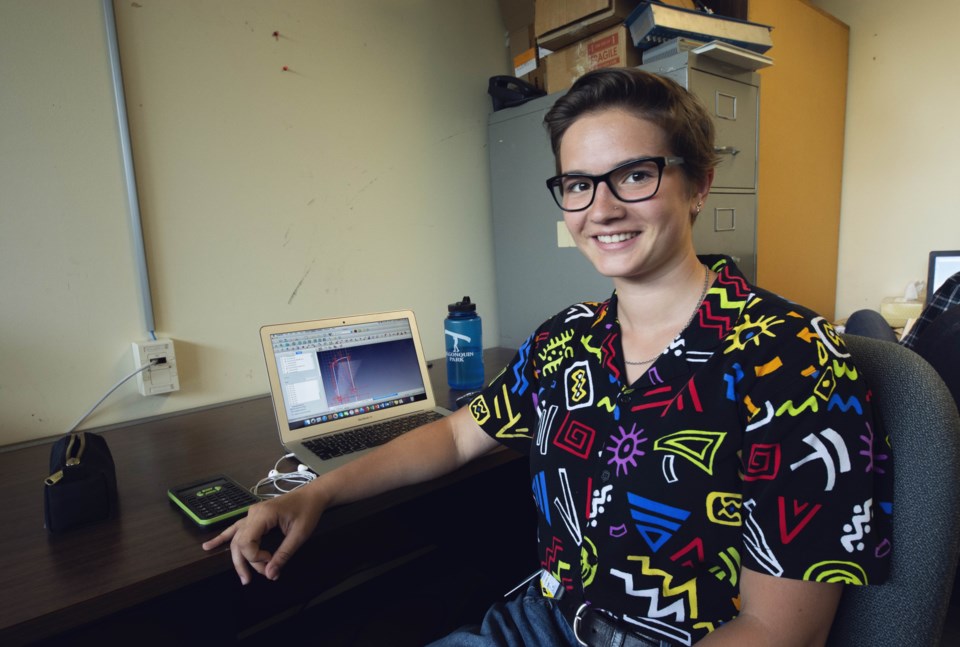Most researchers go their whole careers without working alongside Nobel Prize-winning scientists. Whistler Secondary School (WSS) grad Molly Long did just that—and all before her first day of university.
Long was one of five graduating B.C. secondary students selected this summer for The Young Engineers and Scientists Fellowship at TRIUMF, Canada’s national particle accelerator centre that is regarded as one of the world’s leading subatomic physics research facilities.
Long, 17, said she was inspired after a class field trip to TRIUMF last year—and some prodding from a supportive teacher.
“I thought it was pretty cool, so I kind of just did it,” she said. “I didn’t really expect that I would get it because it’s usually three to five people that are picked, so that was a nice surprise.”
Long credits her teacher at WSS, Jamie Walzl, with ultimately pushing her to apply for the fellowship.
“I had her for physics, calculus and computer programming, and in all those subjects, she was phenomenal,” Walzl said of Long. “She’s someone that, even though the fellowship is difficult to get into, I knew she would definitely have a chance.”
Walzl said the example that Long has set through her six-week research project should prove invaluable to other aspiring scientists at WSS.
“I think it’s outstanding. It’s inspirational for other students,” he said, adding that he will hang a research poster in his classroom that Long sent along for other students to peruse. “It’s very competitive to get into and I think that speaks more to Molly’s exceptional skills more than the stuff we’ve done at the school—other than trying to inspire the students with physics. She’s been on our physics Olympics team for a couple years and, of course, I try to engage her and the other students. It’s just an amazing thing that’s happened.”
Now in her first year of engineering science at the University of Toronto, Long was tasked with researching an area of physics at TRIUMF that has confounded scientists for years: dark matter.
“I didn’t know anything about it. They assign you to whatever project needs people to work on it,” Long said. “It was really, really interesting because most people my age aren’t exposed to that kind of knowledge.”
Specifically, Long assisted with the 3D modelling and design of a scintillating bubble chamber used in a dark matter-detection experiment. Although scientists know that dark matter exists—dark matter and dark energy is thought to make up 95 per cent of total mass-energy in the universe—it has not yet been observed by researchers directly.
“It hasn’t really been discovered yet, so that’s pretty interesting. It’s crazy to think about how much stuff is in the universe that we don’t know about,” said Long.
Now, Long hopes to parlay her time at TRIUMF into a long career in physics—she’s particularly interested in ultracold neutrons.
“It’s definitely a very viable opportunity. I’m hoping to go into physics research—that’s my plan right now, although it might change,” she said. “So having that experience even before university is a really valuable opportunity and it’s going to create a lot of opportunities for me in the future.”
To learn more about TRIUMF and its summer fellowships, visit triumf.ca.




